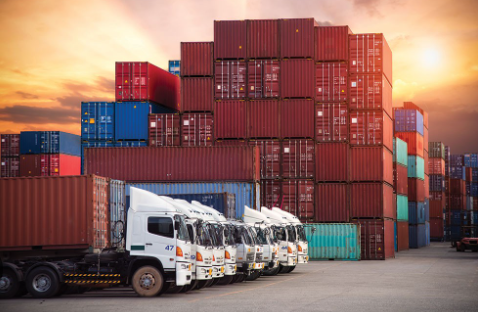Adapting to Global Logistics Trends with Digital Supply Chain Platforms
June 12, 2025
Global supply chains are under more pressure than ever before. From rising freight costs to ongoing labour shortages and geopolitical disruptions, businesses are being forced to rethink the way they manage logistics. Traditional systems are no longer sufficient to handle this complexity. Enter digital supply chain platforms,intelligent systems designed to bring visibility, control, and resilience to logistics operations.
Responding to Rising Freight Costs
One of the most pressing challenges in today’s supply chain landscape is the continuous increase in freight costs. Factors like fuel price volatility, driver shortages, and regulatory changes are pushing transportation expenses higher. Digital supply chain platforms allow businesses to take a proactive approach. With automated shipment tendering, companies can match loads to the most cost-effective carriers, avoid inflated spot rates, and optimise routes for fuel efficiency. These platforms also provide insights into cost per shipment, helping finance teams plan and control budgets with greater accuracy.

Labour Shortages and Automation
Warehouses and logistics companies across the globe are facing workforce shortages, affecting fulfilment speed and reliability. Digital tools help fill these gaps by automating repetitive tasks, such as load scheduling, document management, and vehicle assignments. With fewer manual touchpoints, companies can maintain operational continuity even with limited human resources. Automating these workflows also minimises errors and improves turnaround times, ensuring that customers receive their goods on time.
Monitoring Critical KPIs
Keeping an eye on metrics such as time-to-deliver, turnaround time, and on-time delivery is essential for navigating today’s logistics landscape. Digital platforms offer unified dashboards where businesses can monitor these KPIs in real time. They not only track daily performance but also provide historical data, allowing companies to identify patterns and make strategic decisions based on facts, not assumptions.

Building Resilience with Data-Driven Decisions
Perhaps the most valuable benefit of digital logistics platforms is their ability to make supply chains more resilient. By integrating data from multiple sources—transporters, warehouses, and consignees—businesses can predict delays, reroute shipments, and ensure smoother handovers. This flexibility is crucial in a world where unexpected disruptions are the new normal.
Conclusion
Adaptability is no longer a luxury—it’s a requirement. Digital supply chain platforms enable businesses to tackle modern challenges head-on by improving efficiency, lowering costs, and strengthening operations.
Discover how Truck It In can support your transformation. Visit www.truckitin.ai to learn more!